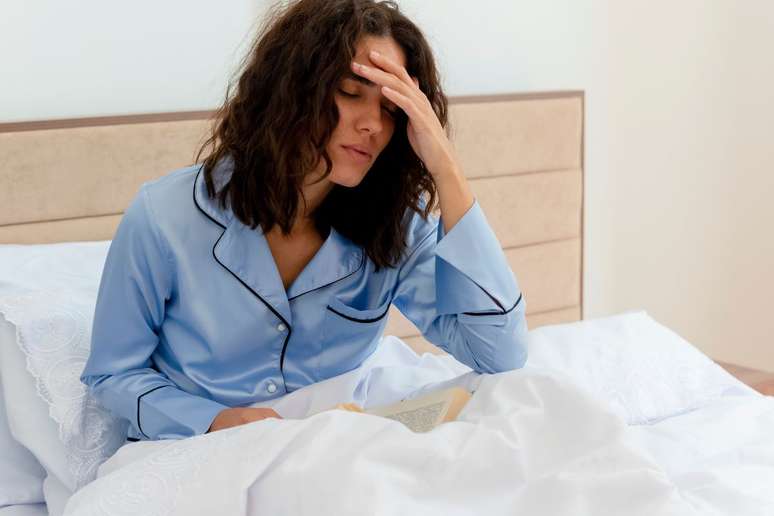Do you suffer from migraine attacks during PMS or menstruation? Find out more about this symptom
In addition to colic, breast swelling, mood changes, extreme hunger, and pimples, PMS and periods can trigger or intensify migraine episodesespecially in people who already suffer from this problem regularly.
“A migraine It is a chronic neurological disease with genetic and hereditary bases that can cause serious damage to the quality of life. It is called menstrual migraine when it occurs during the menstrual period. In other words, they are headache attacks that normally occur 2 days before to 3 days after the start of menstruation“, explains the Doctor Simone Amorimchild neurologist at the Hospital das Clínicas of the Faculty of Medicine of the University of São Paulo (HCFMUSP) and member of the Brazilian Society of Child Neurology.
According to Dr. Luciano Curucigynecologist, acupuncturist and president of the Medical College of Acupuncture of São Paulo, the main factor related to migraines during the menstrual period is decrease in estrogen levels.
“If it has already happened for at least three consecutive menstrual cycles and it’s a situation that drags on, you need to worry,” she warns.
It is important to remember that, during perimenopause, the transition phase towards menopause, there is also a reduction in this hormone and, consequently, migraine attacks may increase.
Symptoms of menstrual migraine
Amorim says symptoms of menstrual migraine include:
- Headache between 2 days before and 3 days after the start of menstruation;
- Pain on only one side of the head;
- Pulsating sensation in the head;
- Nausea and vomit;
- Dizziness;
- Sensitivity to light and sound.
How to relieve menstrual migraine?
OR treatment of menstrual migraine it should be done under the guidance of a doctor. “Only a professional is able to investigate the true cause of this pain and exclude the existence of other pathologies that could be associated”, underlines Dr. Luciano.
The neurologist says that it is difficult to prevent menstrual migraine, as it is a condition strictly linked to hormones. However, some measures can help alleviate it, for example:
- Follow a healthy diet, avoiding alcoholic beverages and ultra-processed foods;
- Don’t forget to get adequate rest and sleep well;
- Practicing physical activity;
- Strengthen water intake during premenstrual syndrome and menstruation;
- Invest in relaxation techniques, such as meditation and yoga.
- Stay away from noisy and brightly lit environments;
- Use hormonal contraceptives and anti-inflammatory and analgesic drugs, always under medical supervision.
“There are hormonal contraceptives that can be used to block the menstrual cycle, leaving estrogen levels stable and thus combating menstrual migraines. However, to recommend them, several aspects must be taken into consideration, we must know whether the patient wants to have menstruation or no, if they are trying to get pregnant, if they have contraindications to this treatment ( migraine aura AND cardiovascular riskfor example), and also whether or not you want to use hormones”, underlines the gynecologist.
“When this menstrual migraine is very recurrent, it is interesting to do a preventive treatment, which may involve the use of oral or even injectable medications to keep pain attacks under control. It is essential that every patient suffering from menstrual migraine undergoes follow-up by a neurologist,” concludes Dr. Aline.
Source: Terra
Ben Stock is a lifestyle journalist and author at Gossipify. He writes about topics such as health, wellness, travel, food and home decor. He provides practical advice and inspiration to improve well-being, keeps readers up to date with latest lifestyle news and trends, known for his engaging writing style, in-depth analysis and unique perspectives.









